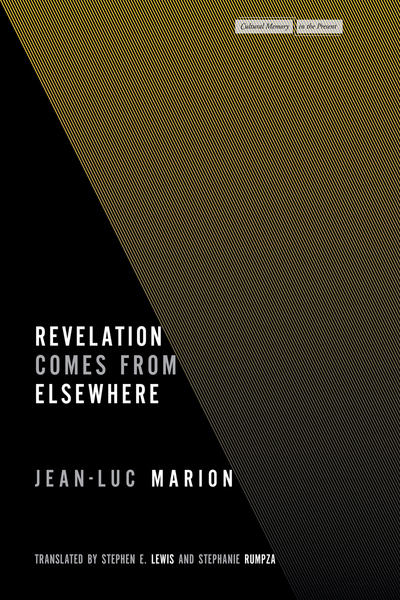
August 2024
532 pages.
from $35.00
Hardcover ISBN: 9781503633377
Paperback ISBN: 9781503639348
Ebook ISBN: 9781503639355
Jean-Luc Marion has long endeavored to broaden our view of truth. In this illuminating new book—his deepest engagement with theology to date—Marion proposes a rigorous new understanding of human and divine revelation in a deeply phenomenological key.
Although today considered the central theme of theology, the concept of Revelation was almost entirely unknown to the first millennium of Christian thought. In a penetrating historical deconstruction, Marion traces the development of this term to the rise of metaphysics from Aquinas through Suárez, Descartes, and Kant; formalized into an epistemological framework, this understanding of Revelation has restricted philosophical and theological thinking ever since. To break free from these limits, Marion takes hints from theologians including Barth and Balthasar while mobilizing the phenomenology of givenness to provide a rigorous new understanding of revelation as a mode of uncovering. His extensive study of the Jewish and Christian Scriptures unfolds a logic of Trinitarian phenomenality, worked out in conversation with Basil, Augustine, Hegel, Schelling, and others, that ultimately transforms our very notions of being and time.
The result is precisely what we have come to expect from this acclaimed philosopher: masterful historical scholarship working in tandem with daring originality.
About the author
Jean-Luc Marion is a member of the Académie Française. Previous books with Stanford include In the Self's Place (2012) and Being Given (2002).
Stephen E. Lewis, Professor of English at the Franciscan University of Steubenville, has translated numerous books of French philosophy, including seven by Jean-Luc Marion.
Stephanie Rumpza is a researcher in philosophy at Sorbonne Université (Paris-IV) and author of Phenomenology of the Icon: Mediating God through the Image (2023).
"This book shows Marion working in the many modes that have made him such an exceptional thinker: a historian of philosophy and theology; a stunningly original phenomenologist; and an exceptionally insightful theologian."
—Jeffrey Kosky, Washington & Lee University
"Revelation Comes from Elsewhere is Marion's masterwork: a summation and extension of all his many original and consequential re-thinkings of phenomenology in its elusive relations with God."
—Kevin Hart, Duke University
"In the world of contemporary philosophy, Jean-Luc Marion stands out as one of the major heirs of the great religious thought of the West. A culmination of this role can be found in the properly theological approach that presides over his new book."
—Florent Georgesco, Le Monde
"The new work of Jean-Luc Marion, one of the most internationally-recognized French philosophers of our day, is a full torrent alongside the little stream of ideas we have come to expect from French philosophy."
—Philippe Chevalier, Lire
"not only an immense philosophical work on divine revelation, one that refines human notions of phenomenal revelation to make room for a grand possibility of l'adonné embracing divine self-manifestation, but also, for all its ambition and creativity, an oblique work of humility."
—Kevin Hart, Modern Theology